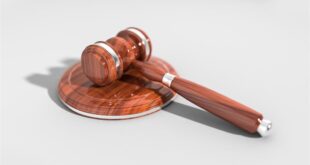The advent of rideshare services like Uber and Lyft has transformed the landscape of urban transportation. With their convenience and accessibility, these services have become a staple in cities worldwide.
However, the increase in their use has also led to a rise in rideshare-related accidents. Navigating the ensuing legal processes can be complex and often requires a detailed understanding of both insurance laws and liability issues. Below, we delve into the intricacies of rideshare accident claims and how to seek proper compensation.
Understanding Rideshare Accident Claims and Insurance Coverage

Understanding the insurance coverage involved in rideshare accidents is essential. Rideshare companies typically offer substantial insurance policies to cover damages and injuries when their drivers are involved in an accident. The coverage varies based on whether the app was active and if a passenger was present at the time of the accident.
For those involved in a rideshare accident, the process can be challenging. It’s important to determine if the rideshare driver’s personal insurance or the company’s commercial policy applies.
Personal insurance often excludes coverage for commercial activities, making the company’s policy more likely to cover such incidents. Seeking legal advice, especially from a specialized attorney like an Uber accident attorney in Chicago, can help navigate these complexities and streamline the claims process.
Determining Fault in Rideshare Accidents
Determining who is at fault in a rideshare accident is crucial for victims seeking damages. This involves examining evidence such as drivers’ accounts, witness statements, accident reports, and possibly security camera or dashcam footage. Rideshare companies often use their resources to investigate and minimize their liability.
Fault may lie with the rideshare driver if they were negligent, like driving distractedly or breaking traffic laws. Other parties, such as another motorist or pedestrian, might be responsible. In some cases, liability is shared among several individuals, complicating claims.
State laws also play a role, with some states following comparative negligence, allowing damages from multiple parties based on their fault, while others follow contributory negligence, barring recovery if the claimant is even slightly at fault.
Telematics and other data recording technologies in rideshare vehicles can provide crucial insights into accidents, impacting fault determination and compensation claims.
Steps to Take Immediately Following a Rideshare Accident
After a rideshare accident, prompt actions are crucial. Firstly, prioritize everyone’s safety and promptly contact emergency services if there are injuries. Notify law enforcement to generate an official accident report, essential for insurance claims.
Then, gather vital information such as names, contact details, insurance information, and photos of the accident scene and damages. Collecting witness accounts, if available, can bolster your case.
Seek medical attention promptly, even for seemingly minor injuries, and document all assessments and treatments to support your claim. Avoid discussing fault or details with insurance representatives without legal advice to prevent potential pitfalls in the claims process.
Consulting with a legal expert knowledgeable about rideshare accident claims can safeguard your interests during this complex process.
Navigating the Legal Process for Rideshare Accident Compensation

To effectively navigate the claims process after a rideshare accident, it’s crucial to understand the legal framework governing such incidents. Initiating a claim involves reaching out to the relevant insurance providers and providing thorough documentation to support the impact of the accident and associated expenses.
The quality of these submissions significantly influences how insurance companies respond. During negotiations, insurers may offer settlements that fall short of what the victim truly deserves. Having a clear grasp of one’s legal rights and assessing the long-term consequences of injuries is essential during these discussions.
Seeking assistance from a rideshare claims attorney can play a pivotal role in securing a fair settlement. If an acceptable resolution isn’t attainable, litigation may become necessary. Legal representation becomes even more crucial at this juncture, as the legal process can be complex, requiring adherence to strict procedural rules and effective advocacy in court.
Despite potential challenges, pursuing justice through the legal system can be worthwhile when liability is evident and damages are substantial.
Common Challenges in Rideshare Accident Litigation
Litigating rideshare accidents presents numerous hurdles for victims. The complexities of navigating multiple insurance policies can be daunting, especially when liability is contested due to involvement of various parties or nuanced accident circumstances.
Timing is critical due to state-specific statutes of limitations, emphasizing the importance of prompt action to avoid forfeiting compensation rights. Preserving evidence in a timely manner is equally crucial, necessitating proactive measures to prevent loss or destruction.
State laws vary, affecting legal strategies, making it imperative to enlist a knowledgeable attorney familiar with local regulations to navigate the claims process effectively.
Additionally, overcoming public perceptions and potential jury biases, often influenced by rideshare companies’ favorable images, demands a strategic legal approach supported by compelling evidence and strong arguments.
Overall, dealing with rideshare accidents legally demands an understanding of insurance intricacies, state-specific laws, and the capability to navigate a potentially noncooperative terrain posed by large corporations. With the right guidance and an informed strategy, victims can successfully assert their rights and achieve the compensation they deserve for the losses and injuries sustained.
 khamush.com Lifestyle | Motivation | Poems
khamush.com Lifestyle | Motivation | Poems



